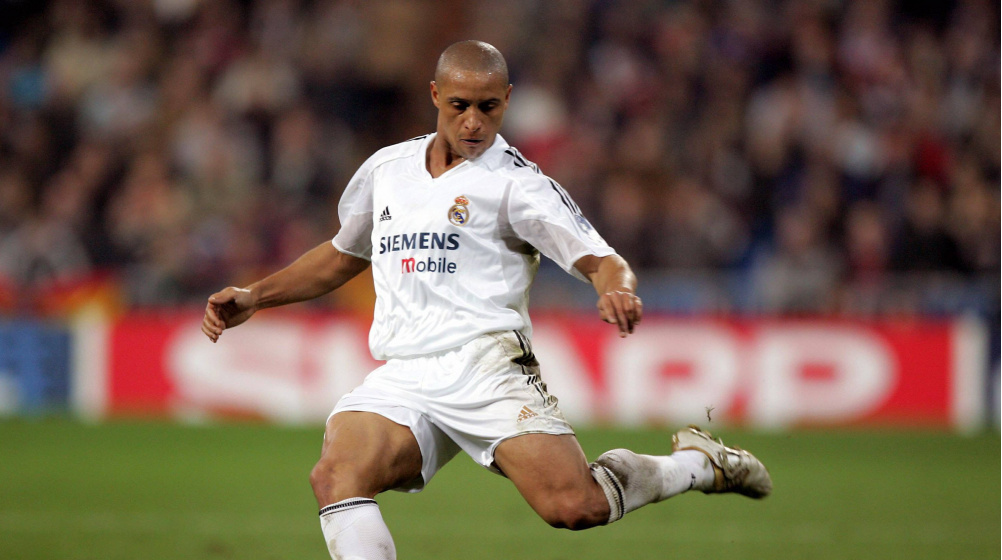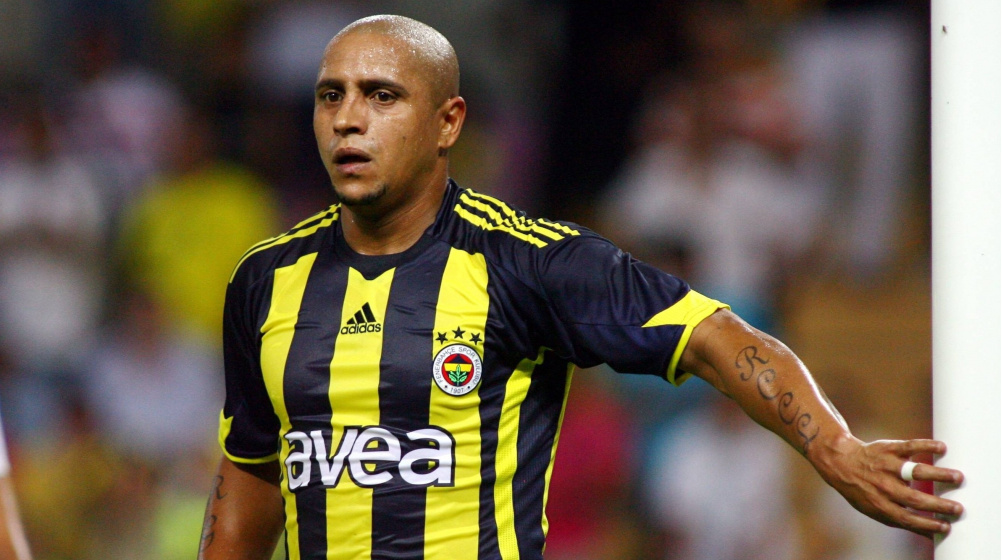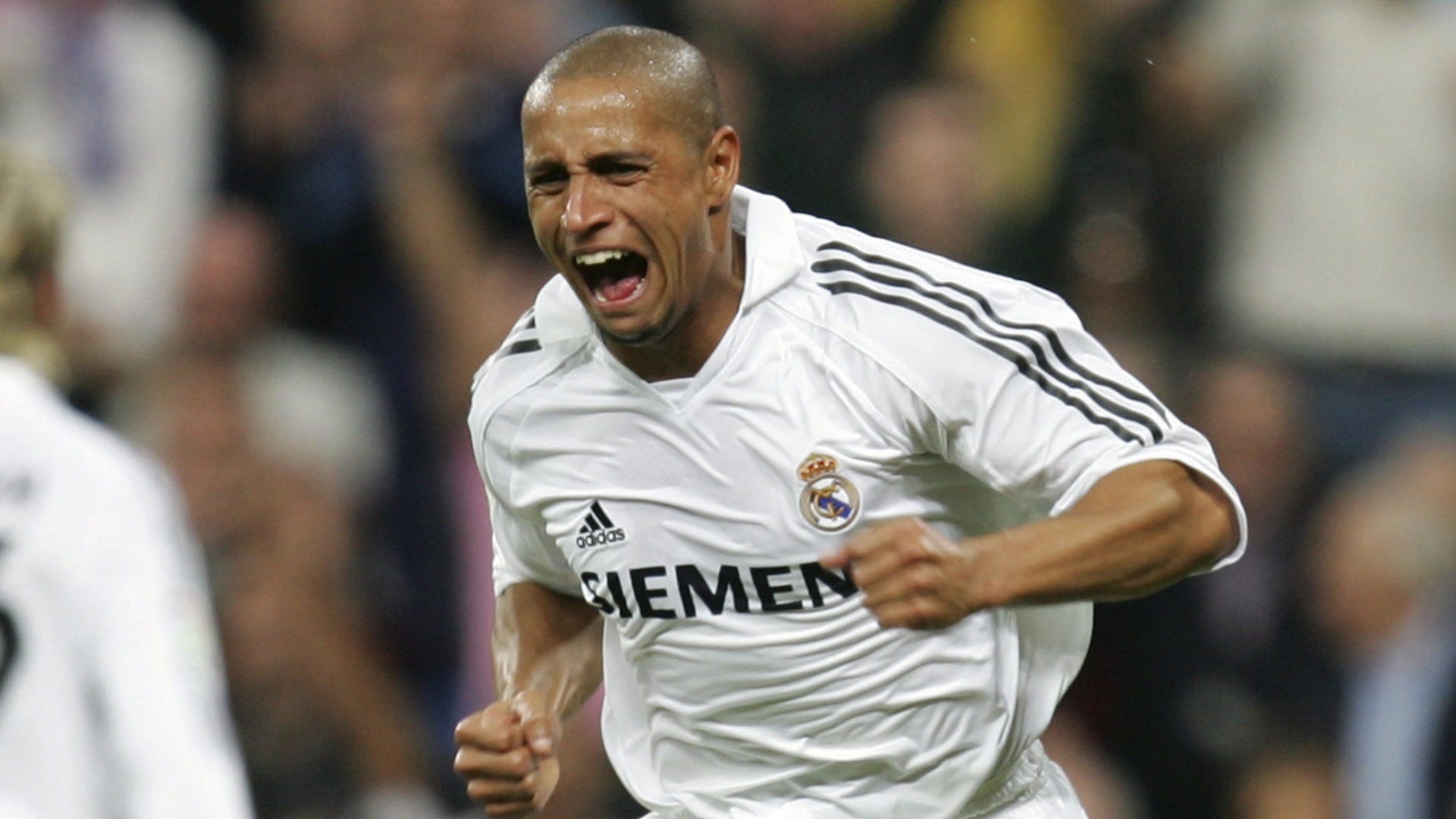Roberto Carlos
 Roberto Carlos, often hailed as one of the greatest left-backs in football history, is a name that resonates deeply within the hearts of football aficionados worldwide. His illustrious career, marked by astounding achievements and unforgettable moments, has solidified his legacy as a true legend of the beautiful game. From his early days in Brazil to his remarkable tenure with Real Madrid and beyond, Roberto Carlos's journey is a captivating narrative of talent, dedication, and sheer brilliance.
Roberto Carlos, often hailed as one of the greatest left-backs in football history, is a name that resonates deeply within the hearts of football aficionados worldwide. His illustrious career, marked by astounding achievements and unforgettable moments, has solidified his legacy as a true legend of the beautiful game. From his early days in Brazil to his remarkable tenure with Real Madrid and beyond, Roberto Carlos's journey is a captivating narrative of talent, dedication, and sheer brilliance.
Born on April 10, 1973, in Garça, São Paulo, Brazil, Roberto Carlos da Silva Rocha grew up in humble surroundings. Like many Brazilian children, he developed a deep passion for football from a young age, playing barefoot matches in the streets of his neighborhood. His talent was evident even in those formative years, catching the attention of local coaches and scouts.
Roberto Carlos's professional career began in 1991 when he joined the Brazilian club, União São João. His remarkable speed, powerful shots, and defensive prowess quickly made him a standout player. His performances garnered the attention of bigger clubs, and in 1993, he made the move to Palmeiras, one of Brazil's most storied football institutions. At Palmeiras, Roberto Carlos further showcased his exceptional skills, helping the team win several domestic titles, including the prestigious Campeonato Paulista and the Brazilian Serie A. His performances on the pitch also caught the eye of the Brazilian national team selectors, earning him his first call-up in 1992.
At Palmeiras, Roberto Carlos further showcased his exceptional skills, helping the team win several domestic titles, including the prestigious Campeonato Paulista and the Brazilian Serie A. His performances on the pitch also caught the eye of the Brazilian national team selectors, earning him his first call-up in 1992.
However, it was during his time at Inter Milan in 1995 that Roberto Carlos truly began to make waves on the international stage. Despite spending just one season at the Italian club, his electrifying displays at left-back left a lasting impression. His time in Serie A also provided him with invaluable experience and exposure to European football.
In 1996, Roberto Carlos made the pivotal move to Real Madrid, where he would etch his name into the annals of football history. It was at the Santiago Bernabéu where he reached the pinnacle of his career, winning numerous domestic and international titles over the course of his 11-year tenure with the club. One of Roberto Carlos's most iconic moments came during a league match against Tenerife in 1998. In a display of sheer audacity and technical mastery, he unleashed a thunderous free-kick from an almost impossible angle, bending the ball in a trajectory that seemed to defy the laws of physics. The goal, famously dubbed the "banana shot," left spectators and fellow players alike in awe, cementing Roberto Carlos's reputation as a free-kick specialist.
One of Roberto Carlos's most iconic moments came during a league match against Tenerife in 1998. In a display of sheer audacity and technical mastery, he unleashed a thunderous free-kick from an almost impossible angle, bending the ball in a trajectory that seemed to defy the laws of physics. The goal, famously dubbed the "banana shot," left spectators and fellow players alike in awe, cementing Roberto Carlos's reputation as a free-kick specialist.
His contributions to Real Madrid's success during the late 1990s and early 2000s were immeasurable. He played an instrumental role in the club's three UEFA Champions League triumphs in 1998, 2000, and 2002, forming a formidable defensive partnership with the likes of Fernando Hierro and Iker Casillas.
Beyond his defensive duties, Roberto Carlos was also a potent attacking force. His blistering pace and powerful left foot made him a constant threat down the left flank, terrorizing opposition defenses with his marauding runs and pinpoint crosses. He revolutionized the role of the modern full-back, setting new standards for both defensive solidity and attacking flair.
In addition to his club successes, Roberto Carlos enjoyed a glittering international career with the Brazilian national team. He represented his country in four FIFA World Cups, playing a crucial role in Brazil's triumph in 2002. His performances throughout the tournament were exemplary, showcasing his leadership qualities and unwavering determination on the grandest stage of them all.
Off the pitch, Roberto Carlos was also known for his philanthropy and humanitarian work. He used his platform and influence to support various charitable causes, particularly those focused on improving the lives of disadvantaged children in Brazil. His commitment to giving back to his community earned him widespread admiration and respect beyond the realm of football. After leaving Real Madrid in 2007, Roberto Carlos continued to ply his trade at various clubs across the globe, including stints in Turkey, Russia, and India. Despite entering the twilight years of his career, his passion for the game remained undiminished, inspiring teammates and fans alike with his enduring love for football.
After leaving Real Madrid in 2007, Roberto Carlos continued to ply his trade at various clubs across the globe, including stints in Turkey, Russia, and India. Despite entering the twilight years of his career, his passion for the game remained undiminished, inspiring teammates and fans alike with his enduring love for football.
In 2012, Roberto Carlos officially announced his retirement from professional football, bringing an end to a remarkable journey that spanned over two decades. His legacy, however, continues to endure, serving as a source of inspiration for future generations of footballers.
In recognition of his immense contributions to the sport, Roberto Carlos has been showered with accolades and honors throughout his career. He has received numerous individual awards, including the FIFA World Cup All-Star Team, the UEFA Team of the Year, and the FIFA 100 list of the world's greatest living players, as selected by Pelé.
As Roberto Carlos once said, "In football, the most important thing is the desire to win, the desire to compete, the desire to give your all on the pitch." Indeed, it is this unwavering desire and dedication that have propelled him to legendary status in the pantheon of footballing greats. Roberto Carlos's story is not just one of success and triumph but also of resilience, perseverance, and the enduring power of passion. He will forever be remembered as a true icon of the beautiful game.






















